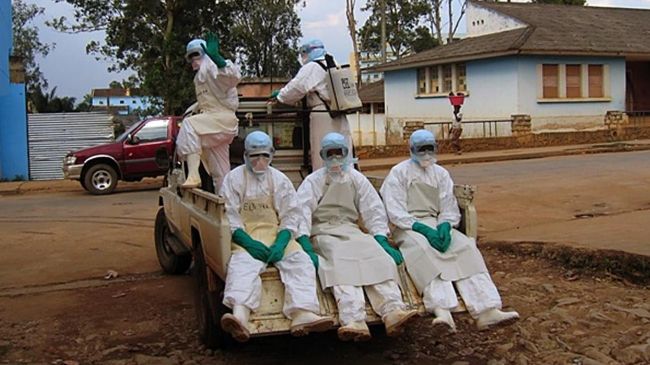
As the death toll of those killed by the Ebola virus steadily rises in several Western African countries, leaders are urging citizens to "do your part" to avoid the disease.
"My fellow Liberians, Ebola is real. Ebola is contagious. And Ebola kills," said Liberian President Ellen Johnson Sirleaf. "All of us must all take extra measures announced by the Ministry of Health to keep ourselves safe.
"The government will do its part. But you must do yours."
Thus far, the disease has killed more than 650 people in Liberia, Sierra Leone and Guinea-and it's only getting worse. On Monday, the CDC issued an alert warning travelers to avoid hospitals with Ebola patients and funerals for patients in the infected countries.
President Sirleaf also told the Ministry of Health to consider quarantines in some areas and cremating bodies in an attempt to prevent further infection, and urged residents to avoid public amusement and entertainment areas. He also set aside Friday "for the disinfection and chlorination of all public facilities."
Both Sirleaf and Sierra Leone's President Ernest Koroma have canceled trips to the United States to focus on fighting the outbreak that has crippled parts of their countries, and Koroma declared a state of emergency.
Several humanitarian groups, including Samaritan's Purse and the United States Peace Corps have pulled many nonessential personnel out of Liberia, Sierra Leone and Guinea, as two American workers with Samaritan's Purse have contracted the disease, and several members of the Peace Corps are currently under isolation.
Those international medical workers who remain are facing significant barriers.
According to a nurse with Doctors Without Borders, Monia Sayah, some residents in affected villages have accused them of bringing the disease into the country and have barricaded their towns or blocked access to Ebola victims.
She told CNN that "the most challenging" aspect of trying to help people is that "we go into communities where we are not necessarily welcome," because people don't want to believe they or their loved ones have Ebola -- in part because "they understand now that the survival rate is not very high."
Yet leaders continue to warn citizens that there is not time to waste.
"The matter has reached a crisis point," Liberian Information Minister Lewis Brown told CNN's Richard Quest. "...The dire prognosis is that it will get worse before it gets better."
The majority of those afflicted are Africans living in Western Africa--and Ebola does not discriminate. Victims of the disease come from big cities and small villages, often dying before detecting the illness.
However, concern the illness will spread is rising around the world, especially since a person may not know they have Ebola or show symptoms for two to 21 days after being infected.
"This epidemic is without precedent," said Bart Janssens, director of operations for Doctors Without Borders, a group also known as Médecins Sans Frontières. "It's absolutely not under control, and the situation keeps worsening."



















